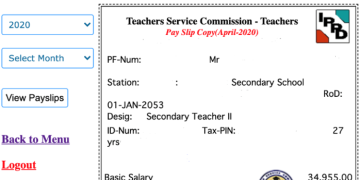The National Environment Management Authority (NEMA) regulates environmental activities in Kenya and enforces compliance with environmental law.
Its decisions affect individuals, companies, and institutions whose operations have an environmental impact.
These decisions may involve issuing or rejecting Environmental Impact Assessment licenses, approving or denying permits, or imposing penalties.
Anyone aggrieved by such a decision has a legal right to challenge it through the National Environment Tribunal, an independent body created under the Environmental Management and Coordination Act of 1999.
Timelines and Requirements
An appeal must be filed within 60 days from the date the decision is communicated. This deadline is strict, and failure to act within it can lead to dismissal.
The process begins with preparing a formal Notice of Appeal.
The notice must state the decision being challenged, the reference number, the date of the decision, and the grounds for appeal.
This forms the foundation of the case and must be clear and properly structured.
Filing the Appeal
Once the notice is ready, the appellant must file the appeal with the National Environment Tribunal in Nairobi.
The appeal must include a copy of the NEMA decision, supporting evidence, relevant documents, and proof that NEMA has been served.
The Tribunal is located at the National Social Security Fund Building, Block A, Eastern Wing, Sixth Floor, Bishop Road.
After receiving the appeal, the Tribunal acknowledges it, serves NEMA with a copy, and sets a hearing date.
At the hearing, the appellant may appear in person or through legal counsel, while NEMA presents its defense.
The Tribunal examines the evidence and legal arguments from both sides before issuing a ruling.
Hearing and Ruling
Once the hearing concludes, the Tribunal delivers a written ruling.
It may uphold, reverse, or vary NEMA’s decision, or issue specific directives requiring NEMA to review its position.
The ruling is legally binding and must be implemented unless overturned by a higher court.
If the appellants remain dissatisfied, they may appeal to the Environment and Land Court within thirty days of the ruling.
This provides an additional channel for judicial review and ensures that decisions undergo further scrutiny where necessary.
Suspension of Decisions
Filing an appeal does not suspend the NEMA decision.
If enforcement is approaching, the appellant must apply for a stay order from the Tribunal to halt implementation while the appeal is pending.
This safeguard prevents irreversible action before the case is concluded.
The strength of an appeal depends on the quality of documentation, the clarity of the legal arguments, and strict adherence to procedure.
Upholding Accountability
The appeals process reflects the balance between environmental protection and the rights of affected parties.
It provides a structured legal mechanism for accountability and ensures that NEMA’s decisions can be challenged.
By setting firm timelines and clear procedures, the system upholds the rule of law while promoting sound environmental governance.
Also Read: How to Confirm the Progress of Your NEMA Permit Application
Anyone affected by a NEMA decision has the right to seek redress through this framework, and those who prepare their cases carefully stand a stronger chance of securing a fair outcome.
Main Reasons for NEMA Appeals
Many appeals arise when the National Environment Management Authority denies or revokes Environmental Impact Assessment (EIA) licenses.
Applicants may argue that they met all legal and technical requirements but were unfairly denied approval.
NEMA may approve a project but attach strict environmental conditions that can be costly, technically unrealistic, or inconsistent with the project scope.
Applicants often appeal to have such conditions reviewed, modified, or removed if they believe the conditions are unreasonable or not supported by law.
Also Read: Complete Guide on How to Apply for a Biodiversity Conservation Permit from NEMA
When NEMA issues stop orders, suspension directives, or enforcement notices, developers may appeal on grounds that the decision was made without proper consultation, due process, or technical justification.
NEMA can impose administrative fines or penalties for alleged violations of environmental law.
Appeals may be filed when the affected party disputes the legality, accuracy, or proportionality of the penalties imposed, or claims they were not given a fair hearing.
Follow our WhatsApp Channel and X Account for real-time news updates.













































































